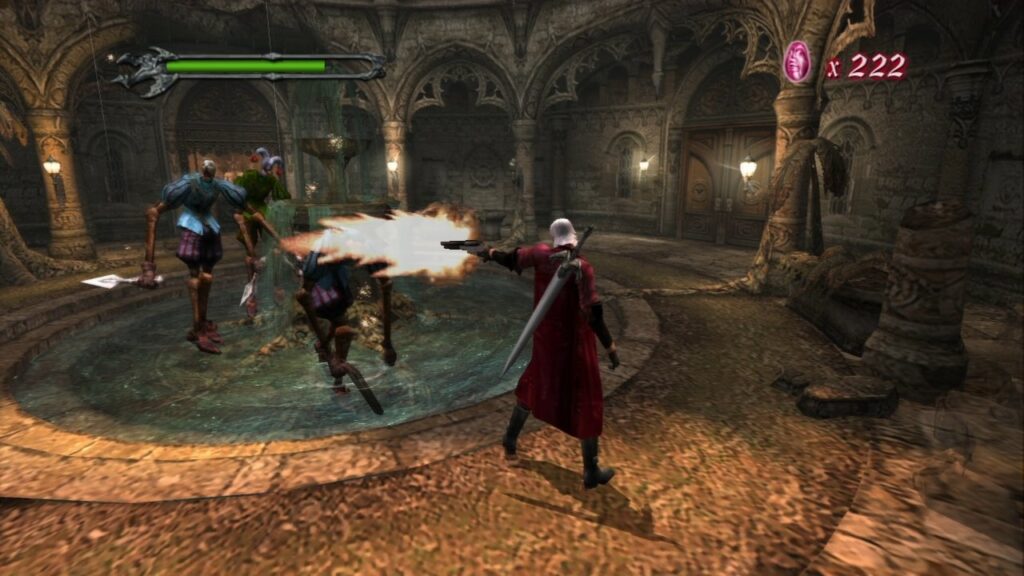
Artist and designer Judy A. Juracek has filed a complaint (readable here) against Capcom, alleging that the game developer and publisher used photographs from her book Surfaces: Visual Research for Artists, Architects, and Designers for environmental and asset designs in Resident Evil 4 and Devil May Cry, according to a report from Polygon.
Juracek’s book of photography was initially published in 1996. It’s a collection of photographic examples of different surface textures and interviews with design professionals. The book was published with a CD of images, but in order to use them commercially, consumers were required to purchase a license.
Juracek alleges that Capcom did not purchase said license, and that 80 photographs featured in her book were used in Capcom’s game development without her consent. Her claim includes assets from Capcom’s titles with similarities to her photography. Her legal team is demanding $12 million in damages on a count of copyright infringement, in addition to further compensation for “false copyright management and removal of copyright management.”
While a book from 1996 might seem old, according to attorney Richard Hoeg of Hoeg Law in Michigan, the age doesn’t matter.
“While that may seem like a long time in real life, it’s really not to the law, and more specifically to the copyright laws,” Hoeg told GameDaily. “US Copyright law (specifically 17 USC 302) states that ‘Copyright in a work created on or after January 1, 1978, subsists from its creation and…endures for a term consisting of the life of the author and 70 years after the author’s death.’ There is no question that the photographer/author held a copyright upon creation of the material used in the book.”
“US Copyright law (specifically 17 USC 106) gives a number of exclusive rights to the creator of a work, including the right to reproduce the work (hence ‘copy’ right) and to prepare derivative works based upon the copyrighted work,” Hoeg continued.
Regarding what Juracek needs to do to prove Capcom unlawfully used her images, Hoeg said that it’s a matter of convincing the court that the company lifted wholesale the photographs and directly inserted them into its games. As ideas and concepts cannot be copyrighted, the resemblance needs to be absolute.
“In general, when you buy a book of reference images as Capcom appears to have done here, you can be inspired by the images and even loosely base the creation of your own art on some of the ideas and concepts presented by those images,” Hoeg explained. “But unless you have received permission from the copyright holder you can’t incorporate them directly into your own work (absent an exception like ‘fair use). The creator here is alleging that Capcom did just that, effectively stealing her work and using it in their own.”
Hoeg said that fair use isn’t likely to apply in this case if Juracek can prove that Capcom used her images, and did so with intent to earn a profit on the products in which they appear. Of course this would require a full investigation, so there are still a number of obstacles in the way.
“All in all, the creator needs to prove that she created the work, that there was no license of rights to reproduce or prepare derivatives expressly or impliedly given through the sale of the book, and, perhaps if Capcom raises it, that a fair use defense does not apply,” Hoeg finished.
A Capcom Representative, when contacted by Polygon, said Capcom is “aware of the lawsuit” and has “no further comment.”
 GameDaily.biz © 2025 | All Rights Reserved.
GameDaily.biz © 2025 | All Rights Reserved.